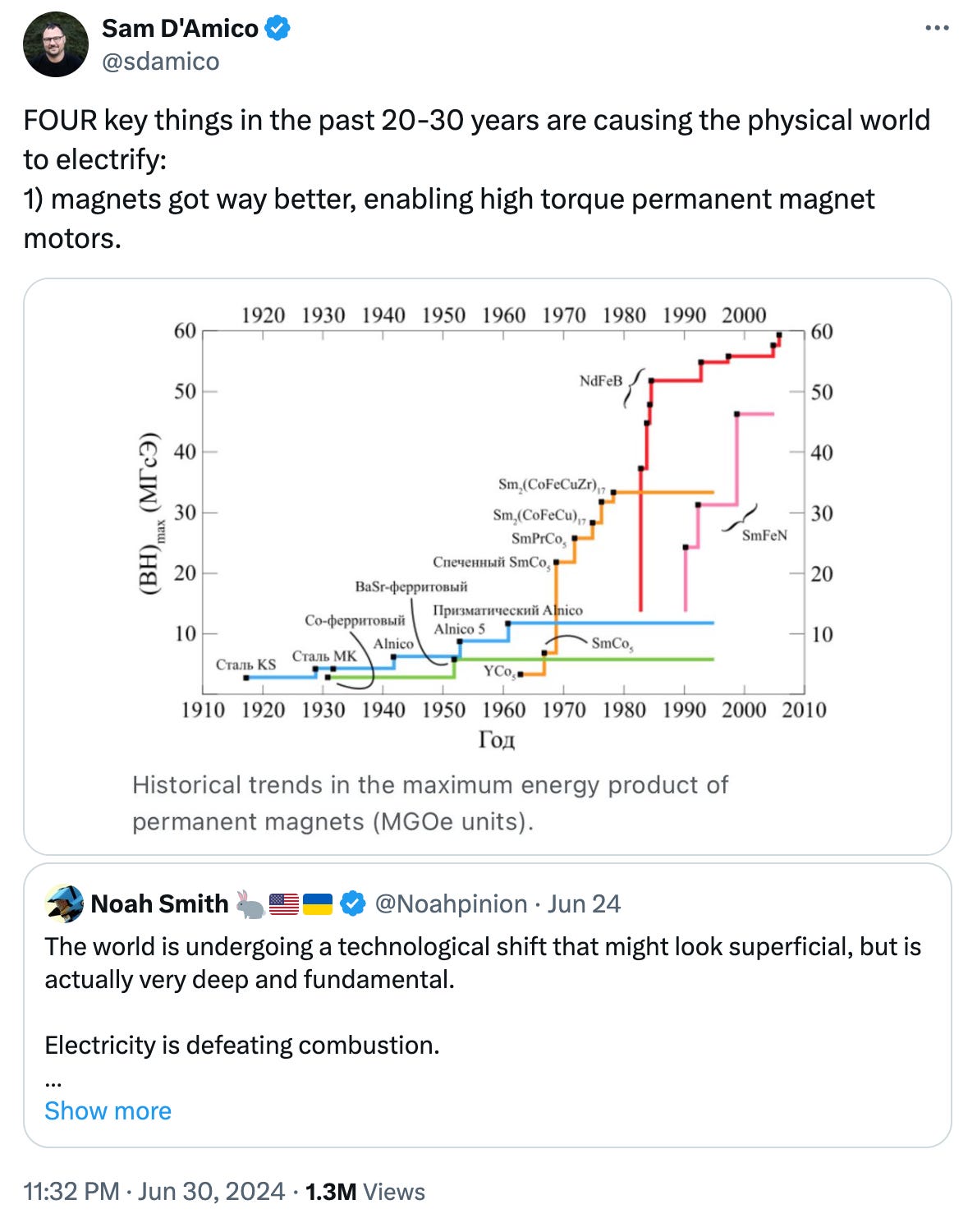What I Read This Week…
The U.S. labor market showed mixed signals in June, the investment world is increasingly focused on geopolitical risks, and Europe's militaries are facing significant personnel shortages
Read our Deep Dive on U.S. Defense
Caught My Eye…
The U.S. economy added 206,000 jobs in June 2024, exceeding expectations, but the unemployment rate rose to 4.1%, its highest level since November 2021. What do these mixed signals mean for the Federal Reserve's interest rate policy? The Federal Reserve's dual mandate requires it to promote maximum employment and price stability, so some see the unemployment rate increase as a factor that may lead to two potential rate cuts this year, with the first expected in September or November. However, economists note that while the labor market is showing signs of moderation, it remains relatively resilient overall.
The investment world is increasingly focused on geopolitical risks, with many financial firms hiring geopolitical advisors and former government officials to help navigate a more complex global landscape. What's driving this trend? Investors perceive a fundamental shift in the global landscape, where geopolitical factors are increasingly driving inflation, amplifying risks, and complicating investment decisions. This marks a departure from recent decades, when globalization typically led to reduced prices and risk across markets. Key concerns include US-China tensions, conflicts in Ukraine and the Middle East, and political instability in South American countries like Venezuela, Bolivia, and Ecuador.
Europe's major militaries are facing significant personnel shortages, with countries like Germany, the UK, France, and Italy struggling to recruit and retain soldiers. What's driving these recruitment challenges, and how are European countries trying to address them? Contributing factors include competition from the private sector for skilled workers, inadequate living conditions on military bases, and changing attitudes towards military service among younger generations. Some countries are exploring new recruitment strategies, including forms of conscription, while others are focusing on improving pay and living conditions to make military careers more attractive.
Other Reading…
Joe Biden Campaigns in Battleground State as Democrats Debate his Future (Financial Times)
Labour has Won the British Election. Now it Has to Seize the Moment (The Economist)
France Votes in Decisive Round of Parliamentary Elections (WSJ)
Meta Drops AI Bombshell: Multi-Token Prediction Models now Open for Research (VentureBeat)
As Amazon Turns 30, Three Factors Will Define its Next Decade (The Economist)
Why Has U.S. Manufacturing Productivity Stagnated for Over a Decade? (Noahpinion)
The Ultimate Blood Substitute? The U.S. Military is Betting $46 Million on It (Science)
On X…




Jill Biden's Self-Appointed Ascension to the Most Powerful Job in the World Reminds Me of Edith Wilson. https://tinyurl.com/yscv9749
"This marks a departure from recent decades, when globalization typically led to reduced prices and risk across markets."
Forecasting the future has become harder due to potential disruptions such as attacks on shipping routes, suppliers being cut off, or sanctions being imposed. Globalization has changed from a distribution of vendors, to a specialization in certain regions that have become the sole suppliers of key materials.